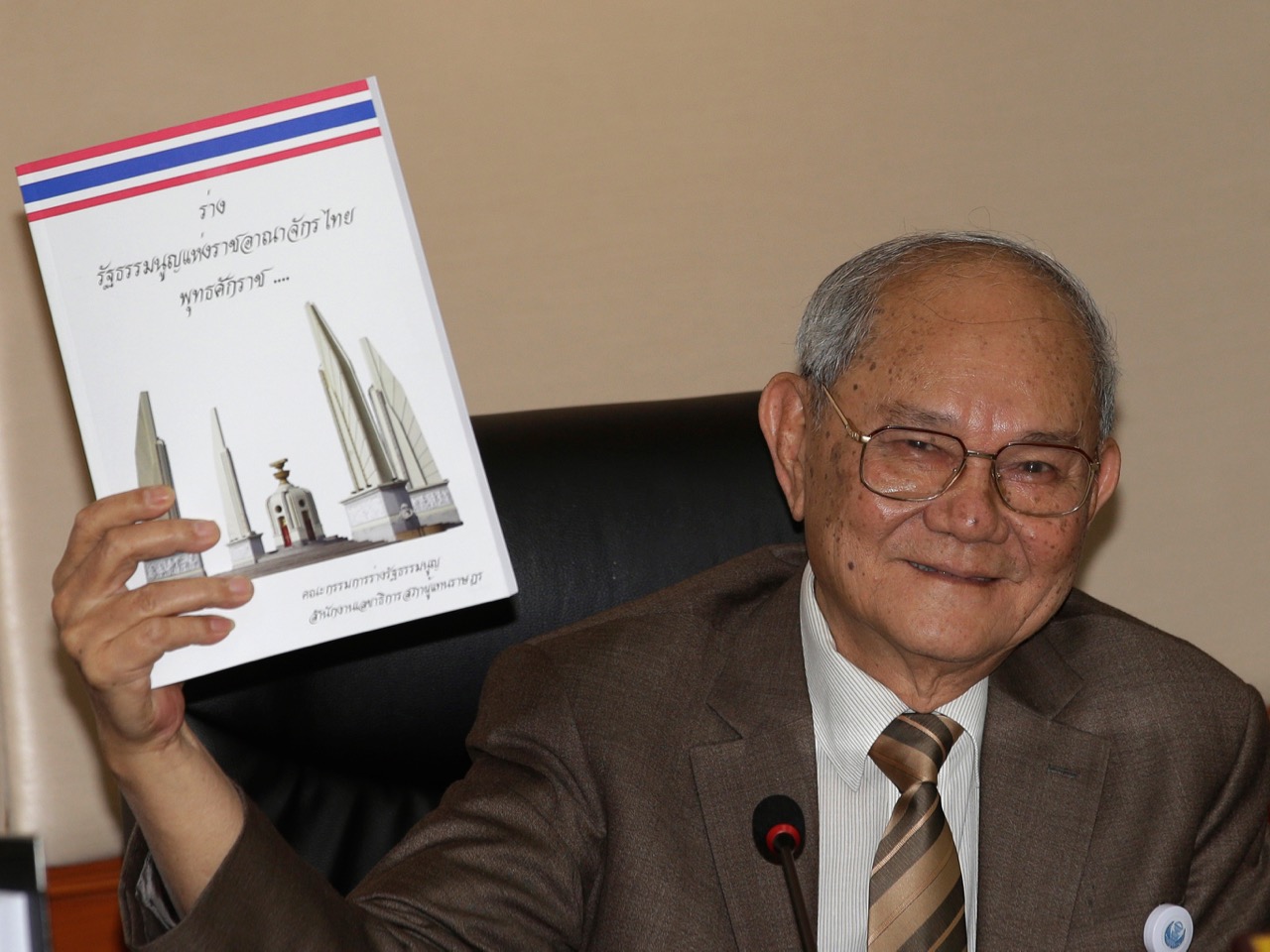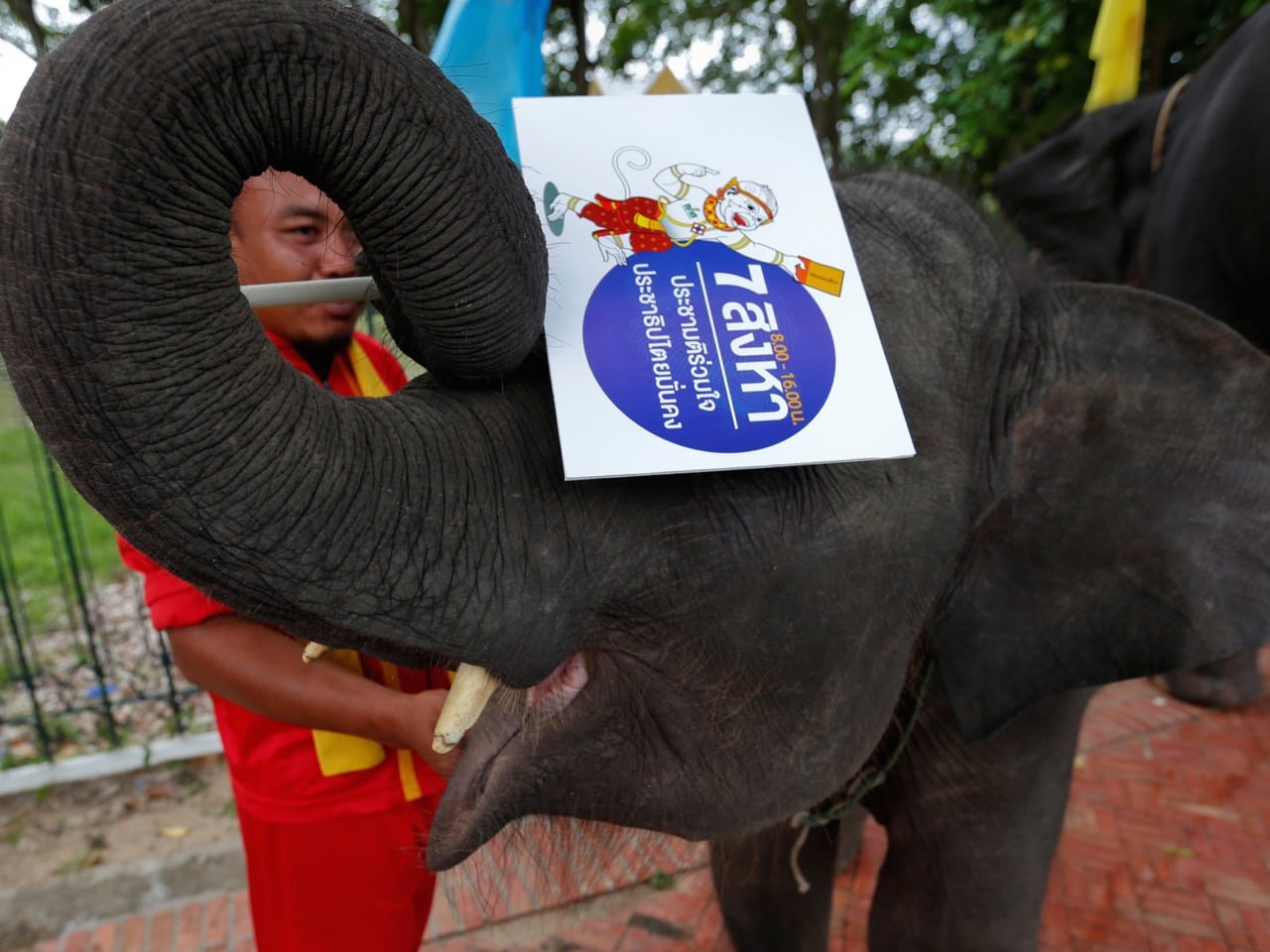The pre-referendum period in Thailand has seen a spike in clampdowns on freedom of speech and freedom of the media under the military junta.
This statement was originally published on seapa.org on 2 August 2016.
One week before the August 7, 2016 national referendum on Thailand’s draft constitution, campaigning is quite muted. On the streets, there are no palpable indicators that Thailand will vote on the basic law apart from official billboards announcing the referendum.
The pre-referendum period has seen a spike in clampdowns on freedom of speech and freedom of the media under the military junta. Arrests, detention, and prosecution because of “anti-junta” activities have intensified since June and earlier this month.
According to the Thai Lawyers for Human Rights, 113 persons have been arrested and charged as of July 12. Some remain under detention pending prosecution over violations of the Draft Constitutional Referendum Act and other military orders related to political speech and illegal assembly.
Restrictive law
Restrictions on campaigning on the draft constitution are governed by Article 61, specifically its paragraph 2, which reads:
“Anyone who propagates through text, pictures, or sound in newspaper, radio, television, electronic media or any other channels that are distorted from facts, or having violent, aggressive, rude, inciting or threatening language aiming to induce eligible voters to refrain from voting, or vote in a certain way, or abstain from voting, shall be regarded as a person who instigates trouble in order to cause disorder in the voting.”
Violators face imprisonment of up to 10 years, a maximum fine of 200,000 Thai Baht (approximately 5,700 US$), or loss of electoral rights for up to five years.
A Constitutional Court ruling on June 29 said that Article 61, paragraph 2 does not contradict with constitutional rights and the liberty of the people guaranteed under Section 4 of the interim charter (2014). The court reasoned that the limitation targets a specific type of content. However, the flawed implementation of the law has already impacted freedom of expression and freedom of the media.
Since the approval of the final version of the draft constitution, officials of the junta, charter drafting body, and the election commission have issued veiled and outright threats against those who campaign against the draft constitution. At the same time, they have mobilised a veritable army of 300,000 civil servants to woo voters to adopt the draft constitution.
Double standard
Last week, Democrat Party leader and former Prime Minister Abhisit Vejajiva announced that he would vote against the draft constitution. In response, Prime Minister General Prayuth Chan-Ocha urged the people not to be swayed by politicians and reminded the public about those who were responsible for a political unrest before he took power in the military coup of May 22, 2014.
That same week on July 24, in defiance to the referendum law, the anti-coup academic group Nitirat, along with 43 local grassroots organisations gathered at the Thammasat University to reject the draft constitution.
The following day, Deputy Premier Visanu Krua-nam threatened to prosecute leading member of Nitirat Dr. Vorachet Pakeerat under Article 61 for his speech at the gathering, because it persuaded people to vote against the draft constitution.
On the other hand, when the chairman of the Constitutional Drafting Committee, Meechai Ruchupan, said on July 26 that the rejection of the draft constitution would lead to political instability and spur protests to oust Gen Prayuth, there were no warnings from the Election Commission (EC).
For non-supporters of the draft constitution, the implementation of the law has been swifter.
On July 10, three pro-democracy activists and a senior reporter of Prachatai news website were arrested and detained in Ratchaburi province. The four were arrested as they were about to return to Bangkok from Ratchaburi.
Taweesak Kerdpoka, a Prachatai political reporter, wanted to join the trio to ride back to Bangkok after covering the later’s visit to Ratchaburi police station to give moral support to members of anti-junta group New Democracy Movement (NDM) who were arrested in connection with the “Vote No” campaign. Despite his insistence that he was a reporter covering the referendum issue, the police still arrested and detained him.
Police found at the back of the car “Vote No” campaign materials, including a number of NDM pamphlets criticising the draft constitution.
The three activists and Taweesak were released after posting bail after two days. They face charges of colluding to publicise distorted contents about the draft constitution.
The arrest took place even before the National Election Commission (NEC) ruled that the NDM anti-charter pamphlet was illegal. Human rights and legal experts criticised the disproportionate action of the police, as Article 61 did not say whether merely possessing questionable materials is considered an offense.
The Thai Journalists Association (TJA) in particular called the police to release and drop the charge against Taweesak as he merely performed his duty to report.
At the same time, NEC has been widely criticized for its non-neutral conduct of the referendum. Critics say that NEC seemed to go beyond its mandate by producing constitutional campaign materials that entice voters with promises beyond what the draft constitution says.
In the media, an NEC-approved TV debate series on the referendum aired over the Thai Public Broadcasting Service bars certain members of the Red-Shirts political movement and anti-coup groups.
More broadly, the Thai media walks a tight rope in reporting on both sides of the constitutional debate as the line to be crossed about what is allowed under the referendum law has been subject to the interpretation of the NEC.
The uncertainty about reporting on the draft charter no doubt had an impact on Khaosod daily’s decision to withdraw an entire article suggesting a referendum cancellation because of the current political environment. Khaosod decided to withdraw the article – rather than make changes to the original – after receiving a warning from junta officials who pointed out that publication of the article as is may lead to legal consequences.
Broader restrictions
On July 13, the National Council for Peace and Order (NCPO) issued Order No. 41 empowering the National Broadcasting and Telecommunications Commission (NBTC) to shutdown television and/or radio stations that broadcast contents deemed in violation of NCPO orders with no possibility for an appeal.
While the move has been seen as targeting the Red-shirt affiliated Peace TV, which was given a 30-day suspension for violating a memorandum of understanding between NBTC and the station after an earlier shutdown in 2014, Order No. 41 closes all possible channels for appeal against the closure of Peace TV.
However, Order No. 41 has far-reaching impact on freedom of the media and freedom of speech in Thailand beyond the referendum period.
Five professional media organisations in a joint statement protested against the order saying it bodes ill for the climate of free and thorough debate of the draft constitution necessary to keep the public informed ahead of the referendum day.
They said the order gave extensive power to the NBTC beyond its mandate to regulate contents that were not specified under the Broadcasting Business Act.
Order 41, in fact, enforces NCPO’s previous orders No. 97/2014 and No.103/2014 relating to media censorship. It thus signaled the military junta’s absolute control of the broadcast media through the NBTC.
Ill-informed choice
Two weeks before the polling day, the military junta gave nod to a more substantive TV debate about the pros and cons of the draft constitution. But the debate is limited and guided by the NEC in terms of issues and speakers.
In the previous referendum on the 2007 Charter, Thai voters were better informed ahead of the referendum as they enjoyed a freer and more thorough debating environment. It must be remembered that the 2007 Constitution was drafted under the government installed by the 2006 coup-makers who toppled then prime minister Thaksin Shinawatra.
For this coming referendum, several polls conducted within the month prior to the referendum revealed that between 60 to 65 percent of voters remain undecided on whether to approve or reject the draft constitution.
The alarmingly high proportion of undecided votes indicates that information on the content and implications of the draft charter has been sorely lacking, in no small measure because of the referendum campaign restrictions.
As the voting day drew closer, the public and the press are left puzzled about what they can or cannot do or say according to the laws.
The NEC in fact only announced on August 1 guidelines on the allowable acts in connection with the referendum.
It is doubtful whether the extremely late announcement can offset the information gap on the draft charter and complexities surrounding any outcome of the referendum.
In such an environment, the legitimacy of the charter vote maybe called into question – whether the results truly represent the wish and the need of the Thai people.

Chairman of the Constitution Drafting Commission Meechai Ruchupan holds the draft of new constitution during a press conference at the Parliament in Bangkok, March 29, 2016AP Photo/Sakchai Lalit



